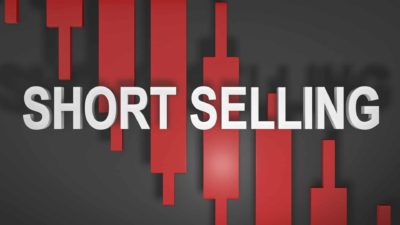Welcome to 2019, Fools.
We woke up this morning to find we had completed yet another trip around the sun. A new year has begun.
For investors, last year was tough. According to Chris Weston, from Pepperstone, 93% of asset classes lost money in 2018. That included the three that you and I most likely own: Australian residential property (including owner-occupied property), Australian shares and US shares.
The ASX had its worst year since 2011. Frankly, if a fall of -6.9% is the worst in 7 years, then those years have been pretty bloody good, historically speaking. Including dividends the result was still a decline, but trimmed to 2.8%.
But, that was then.
One of the wonderful things about a new year is that we start with a clean slate. The ASX is flat so far in 2019. We haven't lost money, made mistakes or missed any opportunities yet. And we don't have the weight of losses to make back, before we start to record yearly gains.
Our evolved brains lead us into all sorts of behavioural traps, as investors, but that ability — to reset, psychologically — is a pretty cool trick.
I don't know what 2019 has in store for us. There are, as every year, reasons to worry. This year it's your preferred combination of a trade war, softening GDP growth, falling house prices and an unpredictable US president.
There are (other) reasons every year, too. And never a shortage of headline-seeking knuckleheads predicting a 70% crash. Every year.
Hey, I guess even a broken clock is right eventually, huh?
Me? I don't make predictions. Which is uncomfortable for a bloke who is regularly asked, on TV, radio and in print, where I expect the market to be trading by a given point at some time in the (usually short-term) future.
Well, it would be uncomfortable, but I'm used to it. I simply smile, and respond that I'm not dumb enough to make predictions (though sometimes I use kinder language, particularly if I'm on a panel with someone who's just made such a prediction!).
It's a shame that more 'experts' don't take the same approach. The problem is that their employers expect it, because their customers ask for it. And if they can't make a prediction, well, the customers will find someone who can. I don't envy them: it must be a stressful exercise.
One thing I really enjoy is podcasts and audiobooks. I have a 90-minute commute into the Sydney CBD a couple of times a week, and it's a great opportunity to get some 'reading' in, as I drive.
I've just started listening to an audiobook which is actually a series of lectures on economic history. The lecturer remarked that economists use theories to try to predict the future, while economic historians like to look at the past to understand how people behaved and how that created our history.
I think in that sense, I'm more 'historian' than 'economist', in the sense that history doesn't repeat, but it does rhyme. I (and all of us here at The Motley Fool) eschew short-termism and much of the sideshow of investing, preferring instead to focus on the bigger, more reliable, historically-based success factors.
For example, I don't know whether we'll finish 2019 with a positive year or a negative one, but I know the market gains value approximately two years out of three, so investing is a good bet.
I know that the market, measured over a sufficiently long time frame, tends to deliver average gains of about 10% per annum (including dividends), so it's worth taking some losses to make sure you're around for the gains.
I know that I'll make mistakes of commission (buying some of the wrong shares) and omission (failing to buy some of the right ones). And that I'll be right for the wrong reasons sometimes, wrong for the right reasons sometimes, and — hopefully more often — right for the right ones.
I know that being emotional is bad for investors. And I know that you have to be careful trying to eliminate losers: for example, if your process gives you 10 companies that gain 500% each and 10 that lose everything, you should embrace it.
Trying to cut out the losers might cost you the winners, too.
By all means, try to improve the process, but don't throw the baby out with the bathwater. (One way to think about this is that an oncologist would never stop offering a treatment with a 90% survival rate, just because one patient in 10 dies.)
You've likely heard of the difference between climate and weather. Weather is the hourly and daily stuff, while climate is the longer term, bigger picture. That's a useful analogy for investors.
If you're trying to grow mangoes or bananas, you don't need to wake up every morning and correctly guess that day's temperature and rainfall. Instead, you need to know if you're in the right type of climate. Hobart will have some lovely warm, sunny days, but good luck with your banana tree!
Investing is the same. We can't know what the market will do tomorrow, for the month of January or even for 2019 as a whole. And it's silly — and likely a distraction — to try. As Queensland's banana farmers know only too well, a single bad weather even can destroy an entire year's crop.
But they farm anyway, knowing that the long term prospects are bright, despite the occasional tough year.
Which is all well and good, right? But the headlines are loud, usually negative and ceaseless. Shouty doom-and-gloomsters get plenty of airtime and column inches, despite being wrong for years. And, well, Donald Trump.
You know what? Maybe they're right this time. But they might have been right in 2013, too. And 2010. And 2004. And 1995. Sometimes, rarely, they are. But the market, on average, ploughs higher over the long term anyway.
So, in an effort to focus on the climate and ignore the weather, a few years ago the team and I created a list of New Year's Resolutions, to help our readers and members navigate the choppy investment waters.
They are, we hope, a touchstone of Foolish investing — the proverbial calming influence that, even when you're feeling punch drunk, you can hang on to. They are:
Foolish New Year's Resolutions
1) I will live below my means — spending less than I earn.
2) I will save money into a rainy-day fund so I'm ready for what life might bring.
3) I will pay off my credit card debt, and only spend what I can pay off within the interest free period each month.
4) I will regularly add to my investment account.
5) I will invest money I don't need for at least 3-5 years to build my nest egg.
6) I will learn more about investing, taking control of my financial future.
7) I will invest in quality businesses, buying a slice of the company, not just a code on a screen.
8) I will buy shares in a company with the intention of holding them for the long term.
9) I will sell when my investment thesis fails, the company is overvalued or I have a better idea.
10) I will avoid anchoring my decisions to the price I paid for my shares.
11) I will remember that the market can be moody and over-react, both on the upside and the downside.
12) I will expect volatility, and I won't let it spook me into selling. Indeed, volatility can offer me great opportunities!
13) I will let the market offer me prices (be my servant), not dictate my mood or actions (be my master).
That, when it boils down to it, is what we think successful investing is all about. Both a positive set of actions you can take today (and throughout 2019 and beyond), but also something you can come back to when you're feeling uncertain, scared or despondent about your investing.
I originally created them for members of Motley Fool Share Advisor. I also created a one-page pdf version that's easy to print out and keep handy. You can find that version, here.
On behalf of the entire team here at The Motley Fool, I want to thank all of our readers and members for being part of our (capital-F) Foolish community in 2018. Thank you for, as our co-founder David Gardner says regularly, suffering a Fool gladly.
And we want to wish you a safe, happy and prosperous 2019. May it be a year of learning things worth knowing; growing mentally, emotionally and financially; enjoying things worth doing; and sharing all of that with those you love — family and friends, new and old.
(You have downloaded and printed it out, right?)
Fool on!

Scott Phillips
Chief Investment Officer, Australia
The Motley Fool








